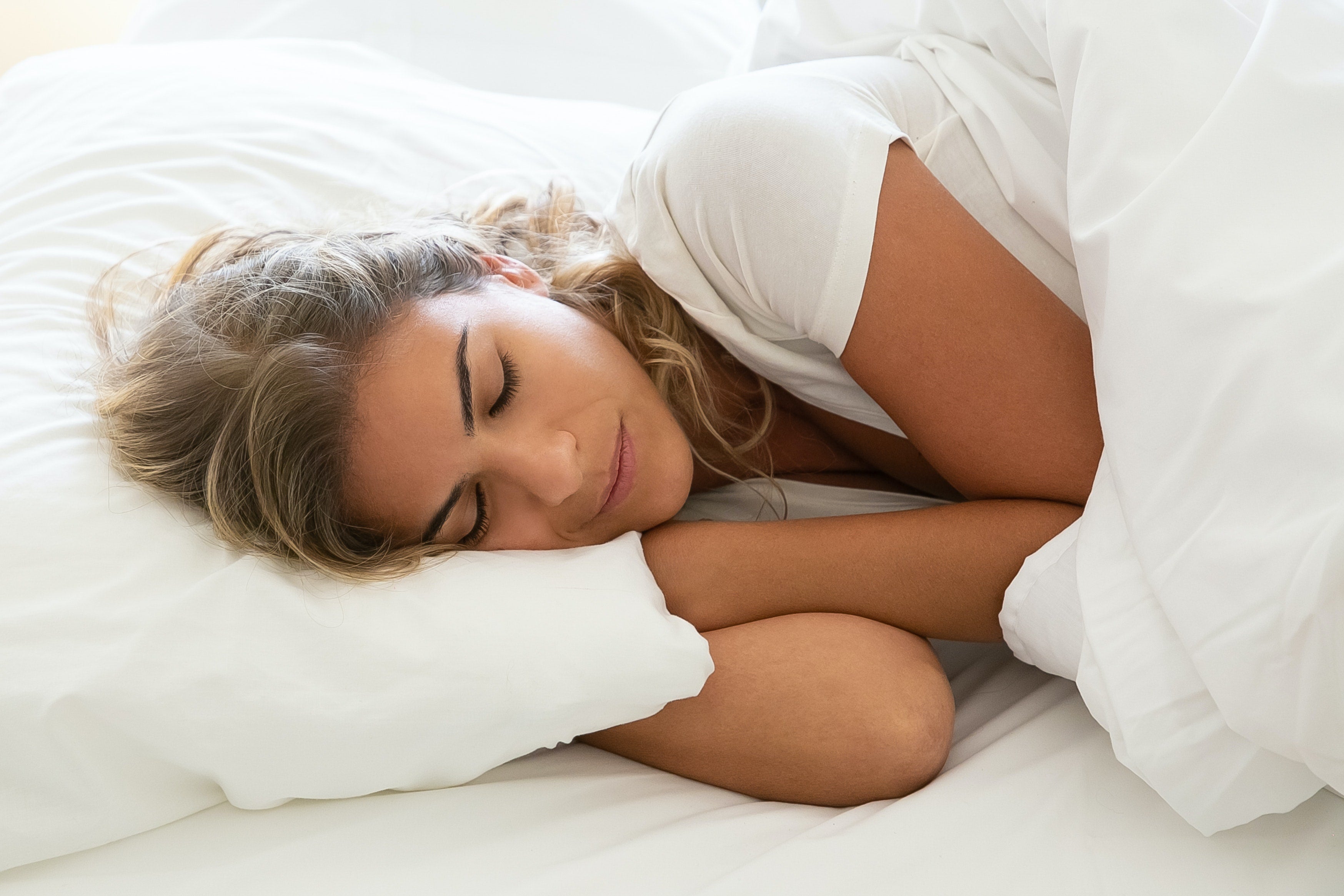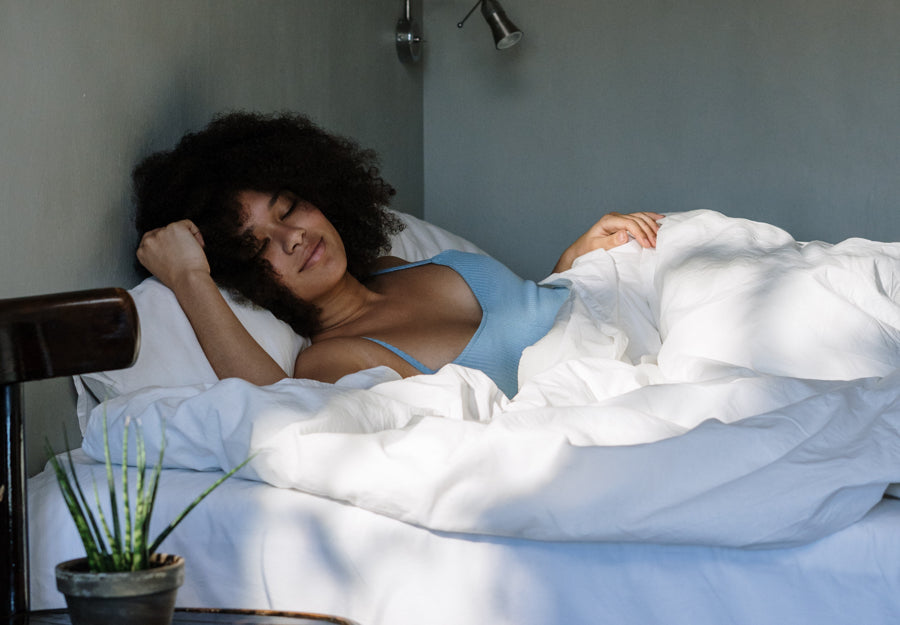Sleep Better: 10 Simple Tips for a Restful Night

Do you find yourself tossing and turning at night, struggling to get a good night's sleep? You're not alone. Many people struggle with sleep, and the impact it has on our daily lives can be significant. Not getting enough rest can leave us feeling groggy, irritable, and unproductive. Fortunately, there are some simple steps you can take to improve your sleep quality and wake up feeling refreshed. In this blog post, we'll share 10 tips for a restful night's sleep that you can start implementing tonight. From creating a relaxing bedtime routine to optimizing your sleeping environment, these tips are designed to help you get the restful sleep you need to tackle the day ahead. So, if you're ready to say goodbye to restless nights and hello to sweet dreams, read on for our top 10 tips for better sleep.
Why is sleep important?
Before we dive into the tips, let's take a moment to discuss why sleep is so important. Sleep is essential for our overall health and well-being. It's during sleep that our bodies repair and regenerate, and our brains process and consolidate memories. Lack of sleep has been linked to a wide range of health problems, including obesity, diabetes, heart disease, and depression. Getting enough restful sleep is crucial for our physical and mental health, as well as our productivity and quality of life.
Common sleep problems
There are a few common sleep problems that many people experience. One of the most common is insomnia, which is the inability to fall asleep or stay asleep. Other sleep problems include sleep apnea, restless leg syndrome, and narcolepsy. If you're experiencing any of these sleep problems, it's important to talk to your doctor to rule out any underlying health issues.
Tip 1: Create a sleep-conducive environment
The environment you sleep in plays a significant role in the quality of your sleep. To create a sleep-conducive environment, start by making sure your bedroom is cool, dark, and quiet. Use blackout curtains or an eye mask to block out any light, and consider using the Soli pillow, earplugs or a white noise machine to block out any noise. Make sure your mattress and pillows are comfortable and supportive, and invest in high-quality bedding that feels soft and cozy against your skin.
Tip 2: Stick to a sleep schedule
Sticking to a sleep schedule is another important factor in getting restful sleep. Try to go to bed and wake up at the same time every day, even on weekends. This will help regulate your body's internal clock and make it easier to fall asleep and wake up naturally. If you need to adjust your sleep schedule, do so gradually, by shifting your bedtime or wake-up time by 15-30 minutes each day.
Tip 3: Practice relaxation techniques
Practicing relaxation techniques before bed can help calm your mind and prepare your body for sleep. Some effective relaxation techniques include deep breathing, progressive muscle relaxation, and visualization. Deep breathing involves taking slow, deep breaths and focusing on your breath as you inhale and exhale. Progressive muscle relaxation involves tensing and then relaxing each muscle group in your body, starting with your toes and working your way up to your head. Visualization involves imagining a peaceful and relaxing scene, such as a beach or a forest, and focusing on the details to create a sense of calm.
Tip 4: Exercise regularly
Regular exercise has been shown to improve sleep quality and duration. Exercise helps regulate your body's internal clock and can also reduce stress and anxiety, which can interfere with sleep. Aim to get at least 30 minutes of moderate-intensity exercise most days of the week. However, avoid exercising too close to bedtime, as this can actually make it harder to fall asleep.
Tip 5: Limit caffeine and alcohol intake
Caffeine and alcohol can both interfere with sleep quality. Caffeine is a stimulant that can keep you awake, so it's best to avoid it in the afternoon and evening. Alcohol, on the other hand, may help you fall asleep initially, but it can disrupt your sleep later in the night. If you do drink alcohol, do so in moderation and avoid drinking within a few hours of bedtime.
Tip 6: Avoid electronic devices before bed
The blue light emitted by electronic devices such as smartphones, tablets, and computers can interfere with your body's production of melatonin, a hormone that regulates sleep. To avoid this, try to avoid using electronic devices for at least an hour before bed. If you must use your phone or computer, consider using a blue light filter or wearing blue light-blocking glasses.
Tip 7: Invest in a comfortable mattress and pillows
Investing in a comfortable mattress and pillows can make a big difference in your sleep quality. A mattress that's too firm or too soft can cause discomfort and lead to tossing and turning. Similarly, pillows that are too thick or too thin can cause neck and shoulder pain. Take the time to choose a mattress and pillows that are comfortable and supportive for your sleeping position.
Tip 8: Optimize your bedroom temperature
The temperature of your bedroom can also affect your sleep quality. Most people sleep best in a cool room, between 60-67 degrees Fahrenheit. However, the ideal temperature can vary from person to person, so experiment to find what works best for you. You may also want to consider using a fan or air conditioner to keep your room cool and comfortable.
Tip 9: Try aromatherapy
Aromatherapy involves using essential oils to promote relaxation and improve sleep quality. Some essential oils that are commonly used for sleep include lavender, chamomile, and ylang-ylang. You can diffuse these oils in your bedroom, use them in a bath, or apply them topically to help promote relaxation and restful sleep.
Tip 10: Seek professional help if necessary
If you've tried these tips and are still struggling with sleep, it may be time to seek professional help. Your doctor or a sleep specialist can help identify any underlying health issues that may be contributing to your sleep problems and recommend treatment options. This may include medications, therapy, or other treatments.
Conclusion
Getting enough restful sleep is crucial for our physical and mental health, as well as our productivity and quality of life. By following these 10 tips, you can create a sleep-conducive environment, stick to a sleep schedule, practice relaxation techniques, exercise regularly, limit caffeine and alcohol intake, avoid electronic devices before bed, invest in a comfortable mattress and pillows, optimize your bedroom temperature, try aromatherapy, and seek professional help if necessary. So, if you're ready to start getting the restful sleep you need, try implementing these tips tonight and wake up feeling refreshed and ready to take on the day.



